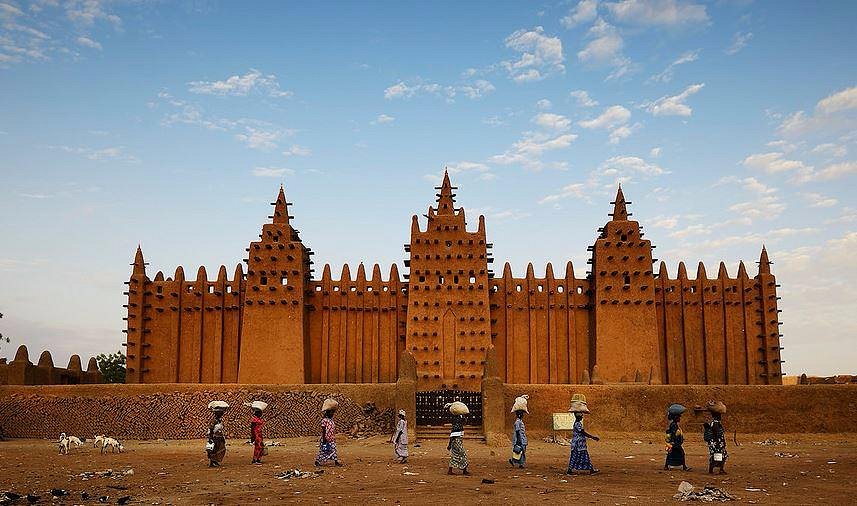In Djenné, Mali, Kola Bah reminisces about his days as a tour guide in the historic city, renowned for its mud-brick mosque listed under UNESCO World Heritage. However, conflict between jihadi rebels and government forces has plunged the once-thriving tourism industry into turmoil.
The Grand Mosque, an architectural marvel, once drew thousands of tourists annually. Yet, dwindling visitors have left Bah, like many others, struggling to make ends meet. Despite hopes for a resolution to the crisis, the prolonged uncertainty has dashed their aspirations.
Djenné, one of sub-Saharan Africa’s oldest towns, boasts a rich history as a bustling market center and pivotal point in the trans-Saharan trade. Its traditional houses and the iconic Grand Mosque reflect the city’s cultural heritage.
Annually, the mosque undergoes a communal ritual of replastering, symbolizing unity amidst adversity. Women fetch water while men apply mud, fostering a sense of pride and solidarity in the face of hardship.
Mali’s conflict, ignited by a 2012 coup, has exacerbated Djenné’s plight. Jihadist groups seized control of northern cities, triggering a decline in tourism. Despite efforts to restore stability, armed groups continue to pose a threat, exacerbating the country’s economic woes.
The decline in tourism has exacerbated Mali’s socioeconomic challenges, with many struggling to survive. The recent political turbulence, including two coups, further compounds the nation’s instability.
While efforts to preserve Djenné’s heritage persist, challenges persist, including illegal excavations and waste disposal. Promoting cultural preservation and engaging the youth in traditions offer a beacon of hope amidst adversity.
As Djenné navigates through turbulent times, its resilience shines through, epitomizing the spirit of a community determined to preserve its heritage amidst the chaos of conflict and political upheaval.






